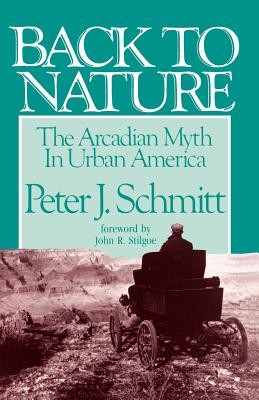
- We will send in 10–14 business days.
- Author: Peter J Schmitt
- Publisher: Johns Hopkins University Press
- ISBN-10: 0801840139
- ISBN-13: 9780801840135
- Format: 14.1 x 21.7 x 1.7 cm, softcover
- Language: English
- SAVE -10% with code: EXTRA
Reviews
Description
Peter J. Schmitt describes the many ways in which America's urban middle class became involved with nature from the turn of the century to shortly after World War I, and he assess the influence of the "Arcadian myth" on American culture. With sympathy and gentle irony, he surveys the manifestations of the American love affair with the country: summer camps, the beginnings of wildlie protection and the conservation crusade, landscaped cemeteris, "Christian ornithology," and wilderness novels. The Arcadian drive reflected urban values, as the city-dweller sought virtue in nature. Landscape gardening, country clubs, national parks, and scenic turnoffs imposed the industrial ethic of order, neatness, and regularity on natural landscaps. Nature study and anthropomorphic animal stories taught moral values to children.
EXTRA 10 % discount with code: EXTRA
The promotion ends in 19d.21:13:55
The discount code is valid when purchasing from 10 €. Discounts do not stack.
- Author: Peter J Schmitt
- Publisher: Johns Hopkins University Press
- ISBN-10: 0801840139
- ISBN-13: 9780801840135
- Format: 14.1 x 21.7 x 1.7 cm, softcover
- Language: English English
Peter J. Schmitt describes the many ways in which America's urban middle class became involved with nature from the turn of the century to shortly after World War I, and he assess the influence of the "Arcadian myth" on American culture. With sympathy and gentle irony, he surveys the manifestations of the American love affair with the country: summer camps, the beginnings of wildlie protection and the conservation crusade, landscaped cemeteris, "Christian ornithology," and wilderness novels. The Arcadian drive reflected urban values, as the city-dweller sought virtue in nature. Landscape gardening, country clubs, national parks, and scenic turnoffs imposed the industrial ethic of order, neatness, and regularity on natural landscaps. Nature study and anthropomorphic animal stories taught moral values to children.


Reviews